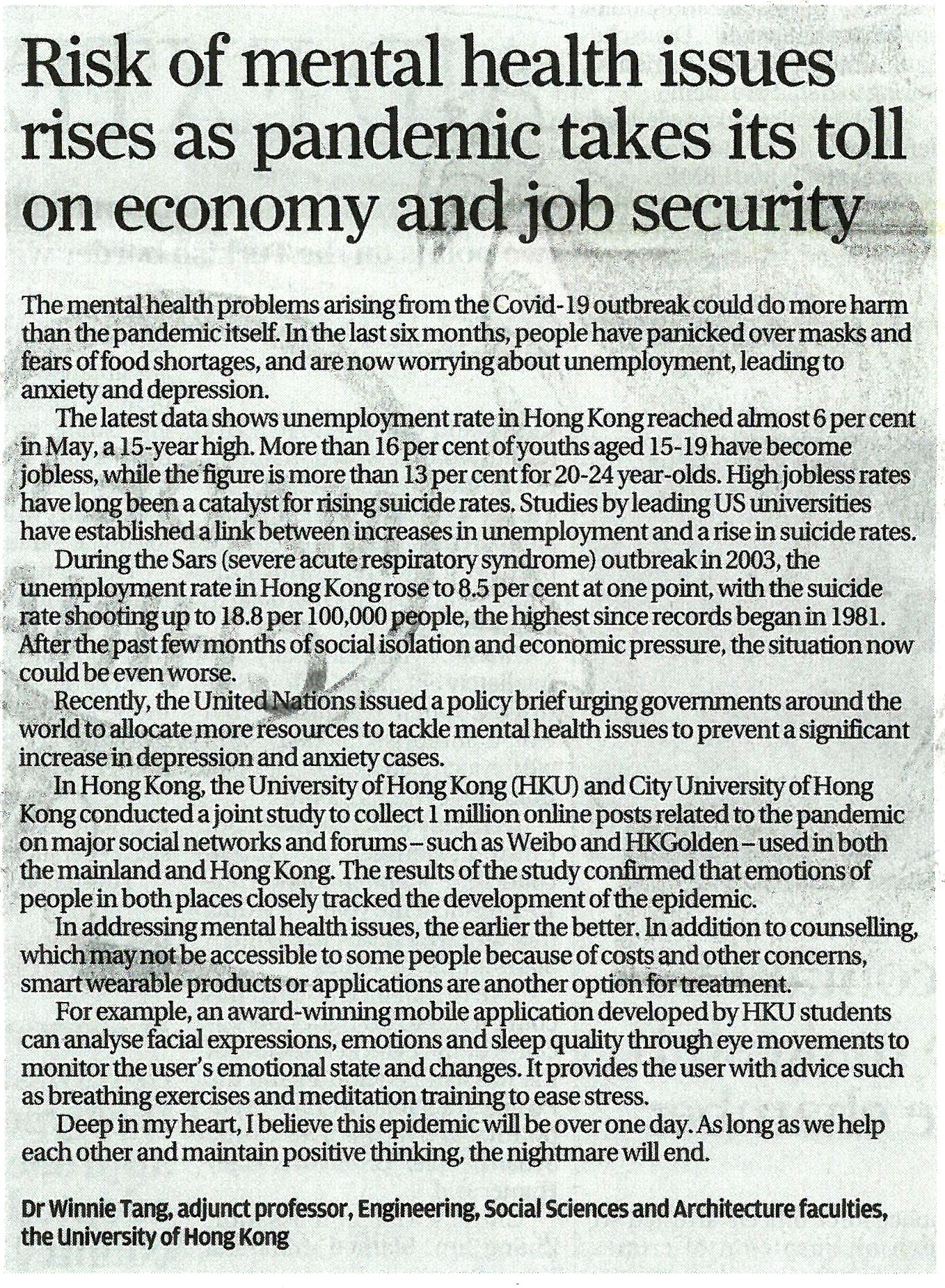網上版請按此

Risk of mental health issues rises as pandemic takes its toll on economy and job security
The mental health problems arising from the Covid-19 outbreak could do more harm than the pandemic itself. In the last six months, people have panicked over masks and fears of food shortages, and are now worrying about unemployment, leading to anxiety and depression.
The latest data show unemployment rate in Hong Kong reached almost 6 per cent in May, a 15-year high. More than 16 per cent of youths aged 15-19 have become jobless, while the figure is more than 13 per cent for 20- to 24-year-olds. High unemployment rates have long been a catalyst for increasing suicide rates. Studies by leading US universities have established a link between increases in unemployment and a rise in suicide rates.
During the Sars (severe acute respiratory syndrome) outbreak in 2003, the unemployment rate in Hong Kong rose to 8.5 per cent at one point, with the suicide rate shooting up to 18.8 per 100,000 people, the highest since records began in 1981. After the past few months of social isolation and economic pressure, the situation now could be even worse.
Recently, the United Nations issued a policy brief urging governments around the world to allocate more resources to tackle mental health issues to prevent a significant increase in depression and anxiety cases.
In Hong Kong, to better understand public sentiment, the University of Hong Kong (HKU) and City University of Hong Kong conducted a joint study to collect 1 million online posts related to the pandemic on major social networks and forums – such as Weibo and HKGolden – used in both the mainland and Hong Kong. The results of the study confirmed that emotions of people in both places closely tracked the development of the epidemic.
In addressing mental health issues, the earlier the better. In addition to psychological counselling, which may not be accessible to some people because of costs and other concerns, smart wearable products or applications are another option for treatment.
For example, an award-winning mobile application developed by HKU students can analyse facial expressions, emotions and sleep quality through eye movements to monitor the user's emotional state and changes. It provides the user with advice such as breathing exercises and meditation training to ease stress.
Deep in my heart, I believe this epidemic will be over one day. As long as we help each other and maintain positive thinking, the nightmare will end.
Dr. Winnie Tang
Adjunct Professor, Engineering, Social Sciences and Architecture faculties, the University of Hong Kong